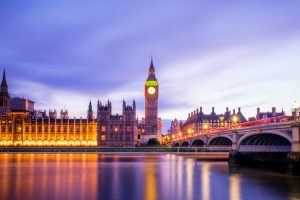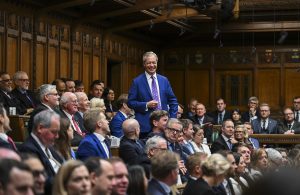The Chancellor of the Exchequer, Philip Hammond MP today delivered the first Spring Statement to Parliament which laid the groundwork for increased spending at the Budget in Autumn.
The Chancellor announced with a flourish in 2016 that he would not deliver two major statements on tax and spending every year to ensure that the Treasury had time to properly consult on initiatives, and to align announcements with the start of the tax year. Instead, today’s statement saw the Chancellor deliver a statutory update on the state of the economy.
The Spring Statement allows the Chancellor to present the Office for Budget Responsibility’s (OBR) forecasts to Parliament, alongside a progress update on policy initiatives delivered at the Autumn Budget. For public affairs professionals, it provides insight into what the Chancellor may be thinking about certain fiscal commitments ahead of the Budget.
The key economic headlines from today’s statement were:
- The economy has grown for five consecutive years, and exceeded expectations in 2017.
- Manufacturing has had the longest period of expansion in 50 years.
- Employment has increased by 3 million since 2010, which is the equivalent of 1,000 people finding work every day.
- The UK’s public finances have reached a turning point, with borrowing down and the first sustained fall in debt for 17 years.
Whilst the Chancellor had made clear prior to the statement that there wouldn’t be any fiscal ‘giveaways’ as there have been in past years, he has fired the starting gun on a number of initiatives which he hopes will feature in the Autumn Budget. This includes:
- A call for evidence will explore how changes to the tax system or charges could be used to reduce the amount of single-use plastics we waste by reducing unnecessary production, increasing reuse, and improving recycling.
- A call for evidence to better understand the role of cash and digital payments in the new economy.
- A call for evidence seeking evidence that demonstrates the significance of any impacts that VAT and/or Air Passenger Duty (APD) have on tourism, or that helps show how VAT and/or APD might be used to support the growing success of the sector in Northern Ireland.
In response to the statement, many MPs took the opportunity to lobby the Chancellor to provide funding for their preferred policies in the Autumn Budget. This included funding for local authority cladding-remedial work, the introduction of a children’s funeral fund, and the imposition of a means-tested national insurance contribution on pensioners. There’s no doubt that the Chancellor and his team will be considering each suggestion closely, and will be receiving many more suggestions in the coming weeks from astute public affairs professionals.



